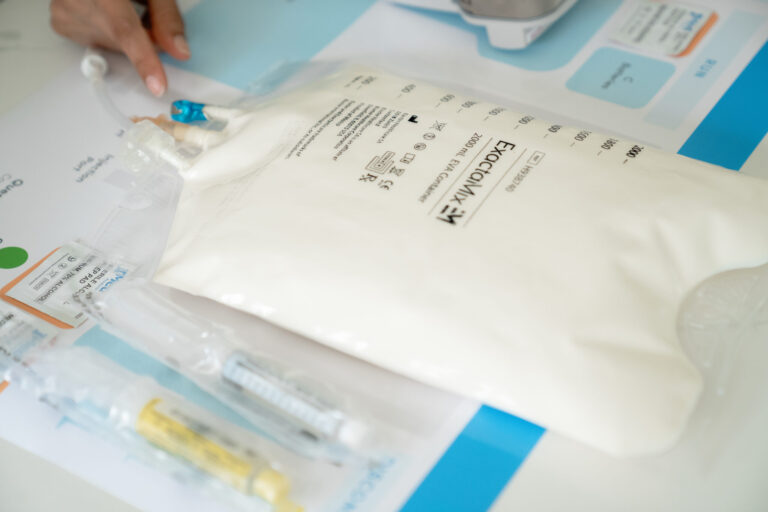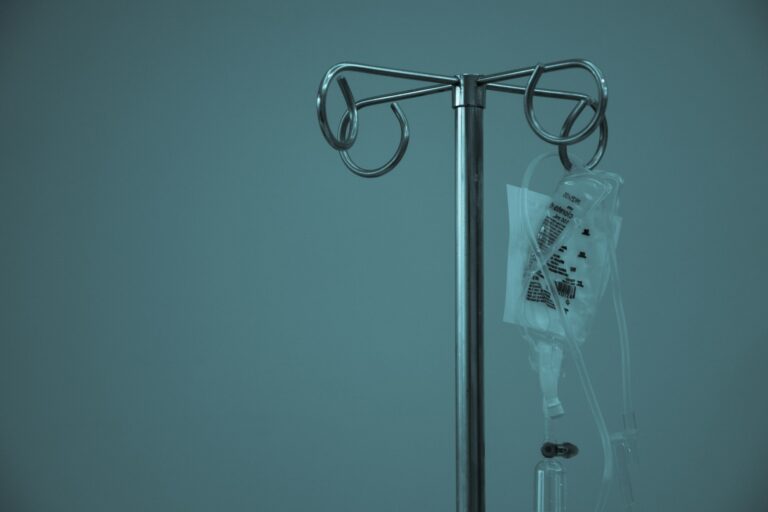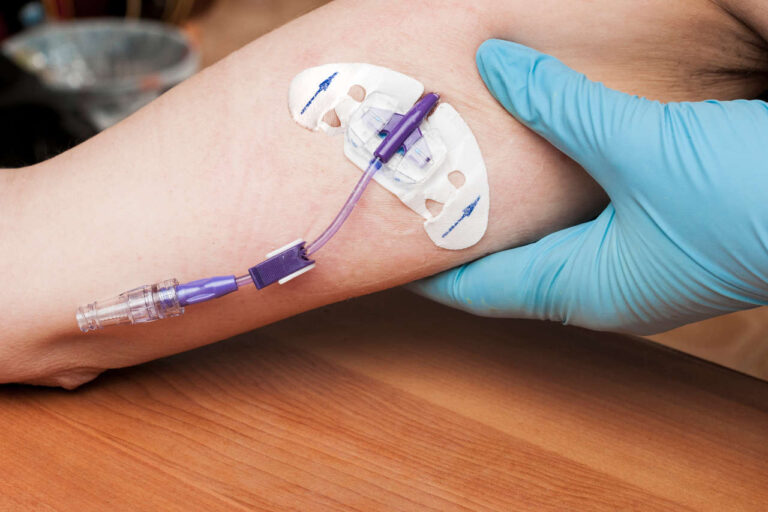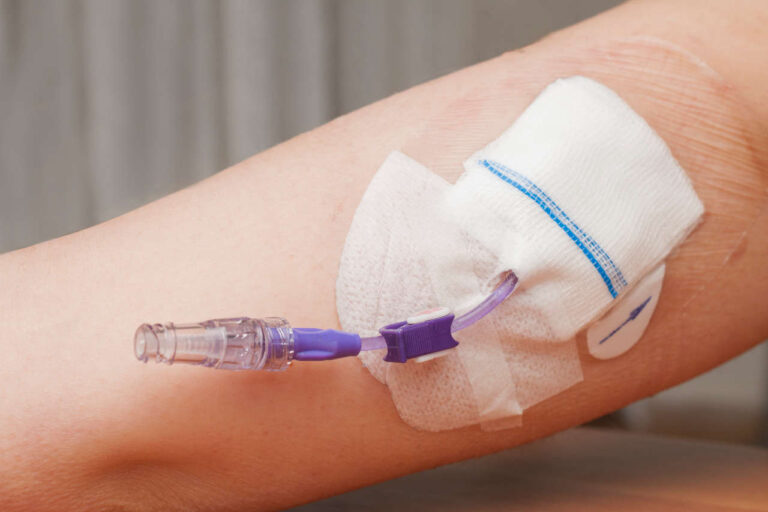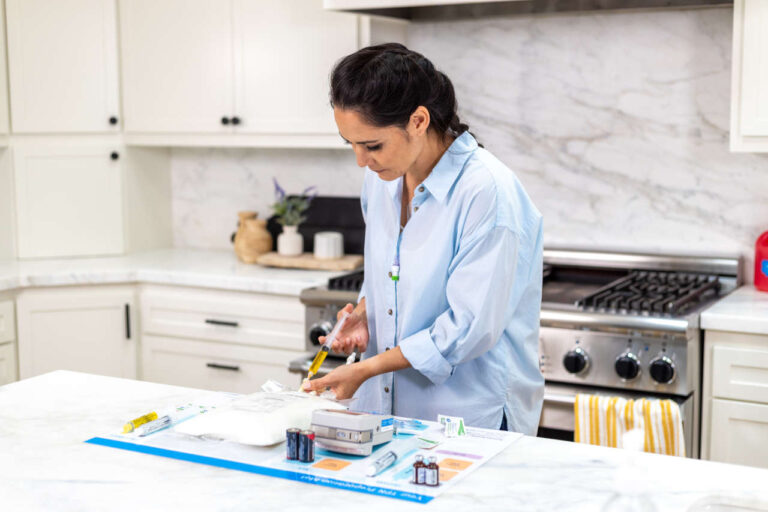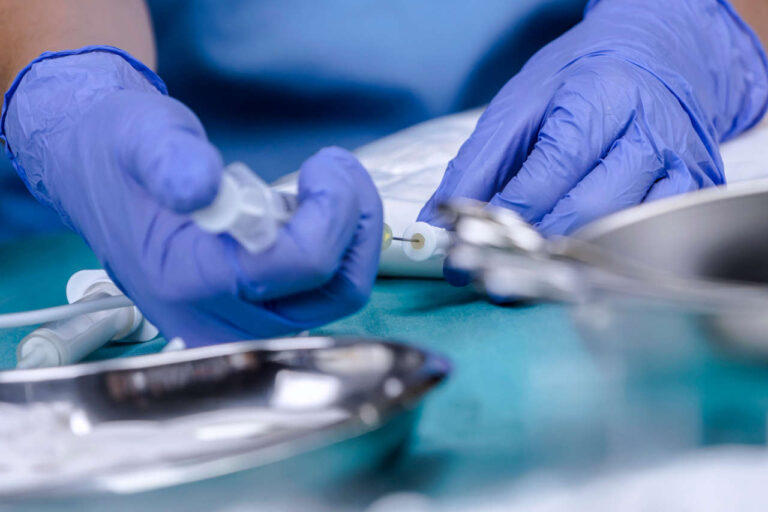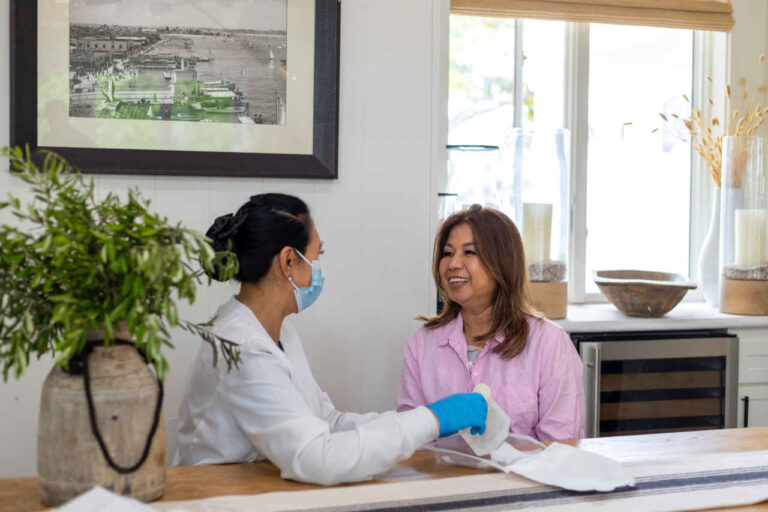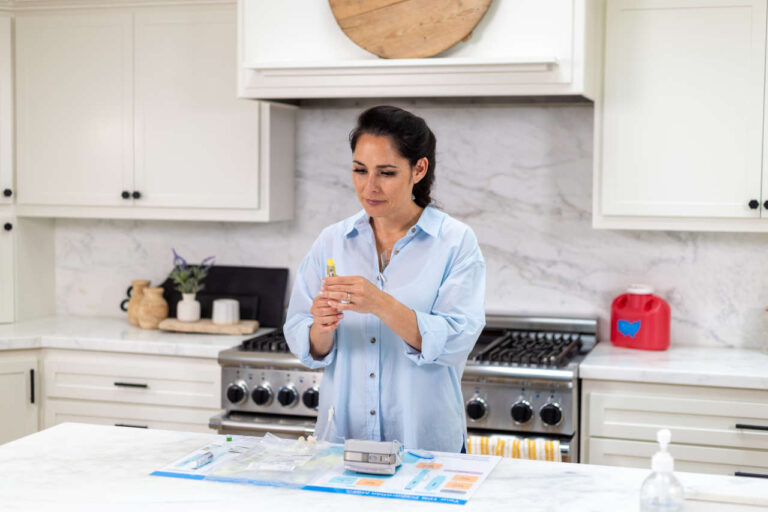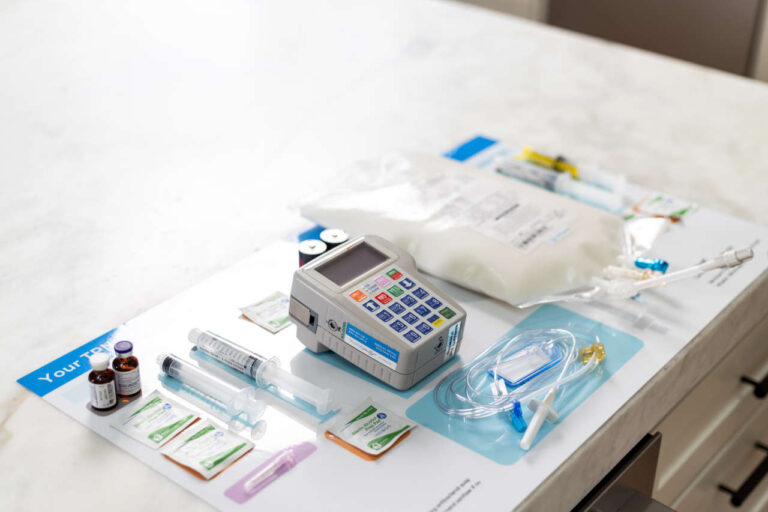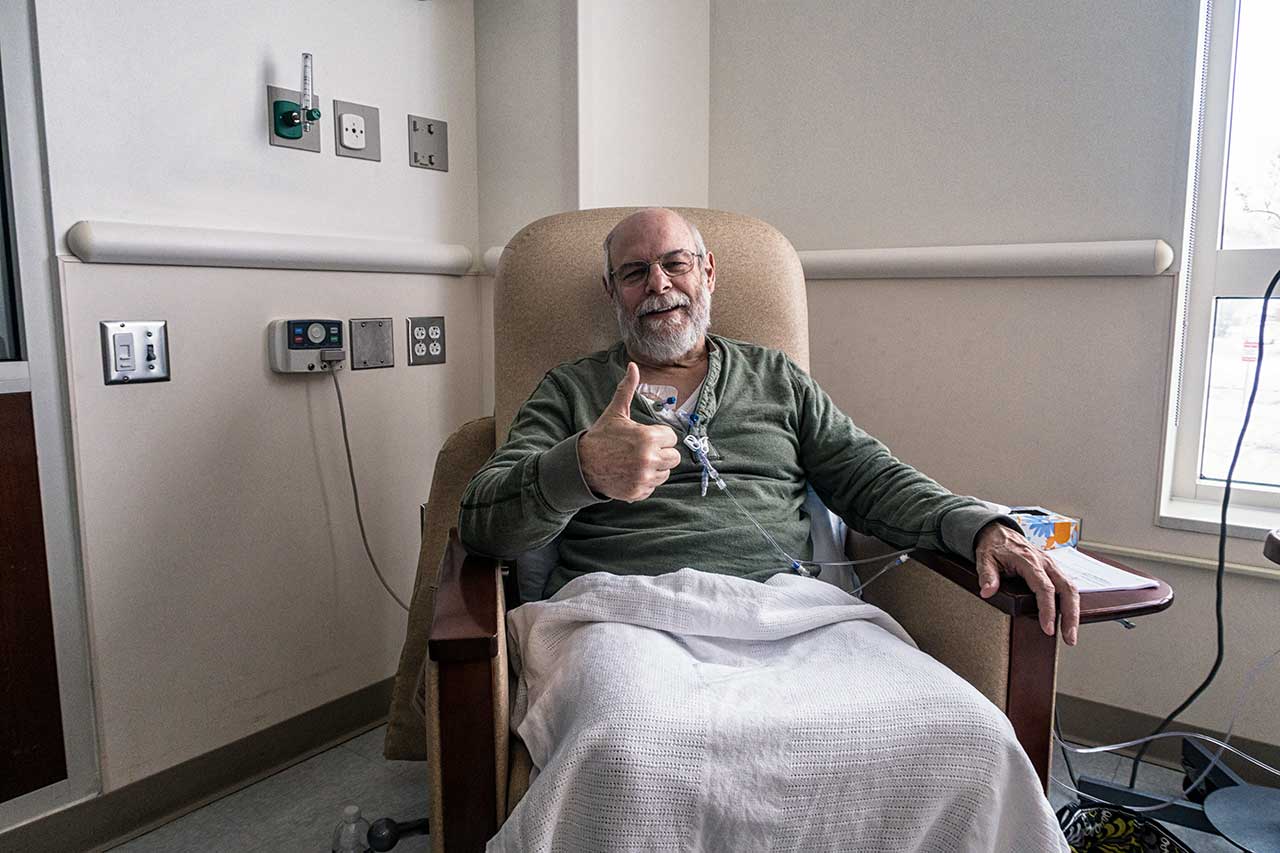
Total parenteral nutrition (TPN) is an alternative way to meet daily nutritional needs without involving the digestive system. Total parenteral nutrition supplies the circulatory system with liquid nutrition through a central line that is located in the chest or upper arm.
Your IV Fluids, Always Available
Full inventory, hassle-free accessTPN nourishes the body with appropriate nutrients, including carbohydrates, vitamins, minerals, electrolytes, water, fats, and proteins. Nutrition experts usually recommend total parenteral nutrition for a person suffering from gastrointestinal tract disorders (inability of the digestive system to break down solid foods).
Gastrointestinal disorders include gastrectomy, fistula, short bowel syndrome, Crohn’s disease, gastrointestinal cancer, intestinal failure, bowel obstruction, and many more.
What To Expect When Starting Total Parenteral Nutrition: Benefits and Possible Complications
You can receive total parenteral nutrition for days, weeks, or any other duration as stipulated by your doctor. TPN is an excellent treatment method for people with digestive system disorders or cancer patients who have difficulty swallowing. Below, we will take a closer look at what to expect when starting TPN.
No pain from the catheter
The idea of inserting a catheter into a vein may sound scary, but fortunately, you will feel little or no pain when the catheter is inserted into your body. You should also experience no pain while receiving liquid nutrients through the catheter.
Low risk of infection
Doctors will use sterile catheters, and it is unlikely you will suffer from any infections while receiving TPN.
You can go about your daily activities

Central lines are typically easy to conceal by wearing a shirt, which is the reason they are so popular. You can thread the line through your shirt and put the bag in a purse or backpack. By doing this, you can go about your daily activities without anyone knowing that you are receiving TPN. The administration schedule can be adjusted to one’s needs.
Possible Complications
It is quite rare to experience side effects from TPN. Nevertheless, some complications can surface over time. They include:
- Loss of appetite
- Hyperglycemia (high blood sugar)
- Hypoglycemia (low blood sugar)
- Thrombosis of the tunneled catheter (obstruction of blood circulation)
- Elevation of liver enzymes
- Dehydration
- Electrolyte imbalances
- Deficiency in some micronutrients (usually minerals and vitamins)
If you notice any of these complications, don’t hesitate to inform your doctor. Also, get regular checkups to ensure you’re not prone to infections. Being on TPN can be emotionally taxing, but you can still live actively if you know how to adjust to your life with TPN.
If you’re considering TPN treatment for yourself or a loved one, make sure to take the time to research your options. Don’t be afraid to ask questions; when it comes to your health, you deserve to have a full understanding of the facts.
AmeriPharma® Specialty Care
Total Parenteral Nutrition | Leader In TPN AssistanceImportance of Labs in TPN
Due to the nature of TPN and the effects it seeks to achieve, continuous lab testing is very important.
Firstly, lab work is required to identify the appropriate amount of nutrients and electrolytes needed by the body. The regulation of these nutrients is the function of the digestive system. However, as the system is not functional for TPN patients, healthcare professionals handling total parenteral nutrition need to ensure that patients get the ideal and accurate quantity of nutrients needed by the body.
As the treatment goes on, there is a need to ensure that the body responds effectively to the TPN treatment. The only way to achieve this is through lab testing. Your doctor will test for glucose levels, electrolyte levels, and other important nutrients that provide optimal working conditions for the body.
They will also test other body organs related to nutrition to confirm that they are not negatively affected by the TPN treatment option. These organs include the liver, pancreas, and other digestion-related organs.
Other lab values checked during TPN include calcium, electrolytes, CBC, transferrin, blood urea nitrogen, triglycerides, and potassium. These laboratory tests are simple and are not expected to be painful. Therefore, patients should prepare themselves for the TPN lab tests the same way they would for a routine laboratory test.
Don’t hesitate to report any discomfort or changes during the treatment. This way, you will point your caregiver or healthcare professional to the right lab tests that they should carry out.
Central Line Care and Maintenance
The catheter and other apparatus involved in feeding nutrients into the body in total parenteral nutrition needs to remain clean and sterile throughout the treatment. Therefore, a nurse or professional caregiver will handle the care and maintenance of the central line.
TPN Standardized Supplies
You do not necessarily need to be hospitalized to receive TPN treatment but make sure to ask your doctor for further details. In a situation where you’ve been given permission to perform TPN without help from healthcare professionals, here are the supplies that will help you maintain the TPN setup:
- Pumps
- TPN bags and lines
- Alcohol wipes
- Sterile barrier
- TPN solution administration set
- Multivitamin infusions
- Needles and syringes
- Sharps container
How to Maintain the Central Line During TPN Treatment
During TPN, it is important to care for your catheter to avoid any complications. Your doctor will advise you on the safest site for insertion and the appropriate catheter to use.
A central venous catheter, or CVC, is most commonly inserted through the jugular vein, with the tip of the catheter sitting in the superior vena cava near your heart. On the other hand, a peripherally inserted central catheter (PICC) is inserted through a large vein in your upper arm, with the tip sitting near your heart
To maintain the central line patency and prevent any catheter-related infections during TPN treatment:
- Use sterile saline to flush the catheter.
- Cover the insertion site with an op-site or sterile gauze pads.
- Change the transparent occlusive dressing at least weekly or when soiled.
- Continuously check the insertion site for signs of infection (swelling/inflammation, redness, drainage).
- Check and report any signs of infection.
- Don’t hesitate to reach out to your doctor or healthcare professional if you have any questions.
Speak to a Specialist About Copay Assistance
Frequently Asked Questions
1. What is the most significant advantage of TPN?
TPN is one of the safest methods for treating digestive tract disease. There may be some side effects, but you are likely to recover from them over time.
2. Does TPN have any negative side effects?
Yes, it does. Negative side effects include loss of appetite, high blood sugar, low blood sugar, and many others. However, these side effects can easily be managed with prompt medical care.
3. Does TPN cure digestive system disorders?
No, it does not. It only provides nutritional support.

